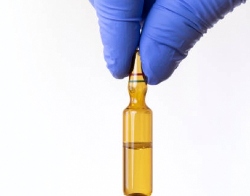CDMO Intravacc has announced the publication of a review on the efficacy of intranasally administered outer membrane vesicle (OMV)-based vaccines.
The paper presents promising results in combatting various emerging and potentially fatal infectious diseases that infiltrate mucosal tissues, such as the oral, nasal, and urogenital surfaces.
The review article has been published in the peer-reviewed journal Current Opinion in Immunology, Volume 84, 2023.
Dr Peter van der Ley, senior scientist of Intravacc and lead author, said: “Our review showcases OMVs' potential in mucosal immunisation. They prompt robust local and distant immune responses. This offers a new angle for battling infectious diseases."
This illustrates the extensive potential of our OMV platform technology, which can also be harnessed for therapeutic vaccines, including those for cancer
- Dr Jan Groen, Intravacc’s CEO
The review article highlights OMVs, released from Gram-negative bacteria, as promising vaccine candidates. They can carry diverse antigens, including those from viruses and bacteria, making them a versatile vaccine platform, especially when administered intranasally.

By targeting the mucosal route, vaccines can induce both localised and systemic immunity. The findings, backed by animal trials, demonstrate OMV-based vaccines' efficacy against various pathogens. They also stress the safety and feasibility of intranasal delivery as an alternative to needles.
The review points to ongoing clinical trials. OMV-based vaccines fuel optimism for innovative vaccine strategies that tap into mucosal immunity’s untapped potential.
Dr Jan Groen, Intravacc’s CEO, said: “As a CDMO, we are presently developing three OMV-based intranasal vaccines to address bacterial and viral infections for diverse customers. This illustrates the extensive potential of our OMV platform technology, which can also be harnessed for therapeutic vaccines, including those for cancer.”
For the development of vaccines, Intravacc has designed and developed a platform based on OMVs - spherical particles with intrinsic immune-stimulating properties. The OMVs can be designed with immunogenic peptides and/or proteins that stimulate effective adaptive immunity.
The OMV carrier has been optimised to induce a more effective immune response against these newly introduced antigens. Intravacc has also developed genetic tools to increase the yield of the OMVs, reduce the toxicity and achieve the desired antigenic composition.
Intravacc's OMV platform is scalable and allows rapid and efficient modification of the antigen composition, either through genetic modification of the bacterial host or by associating antigens with stored OMVs.
